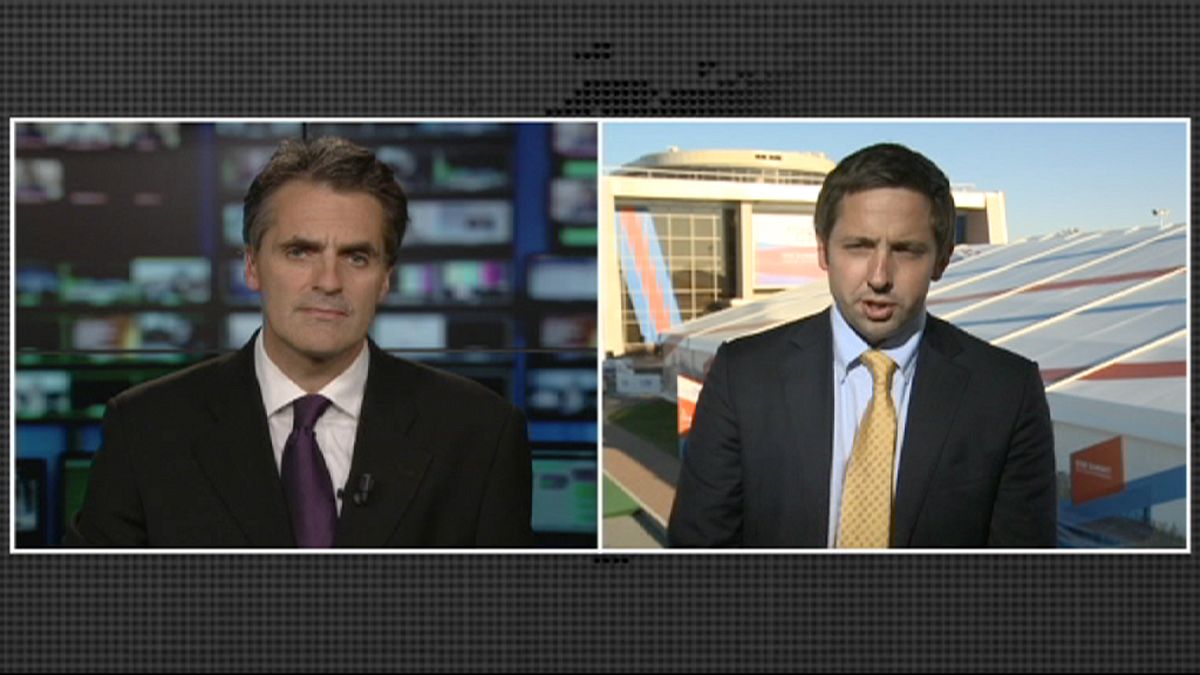Two days of fractious talks in St Petersburg have left the G20 ‘a house divided’ rather than the united front its participants would have hoped for – and all because of Syria.
Our correspondent James Franey’s been following events at the summit and he joins us now.
euronews:
“James, there was never likely to be any consensus on military action against Syria, but has there been any signs of compromise at all between the US and Russia, and indeed the other states opposed to military intervention?”
James Franey:
“There’s been no consensus at all between the opposing sides. In fact, Mr Putin said he’ll continue to deliver weapons to the Assad regime whatever the results of the UN inspector’s report.
“And from the side of US President Barack Obama – he faces a Congressional vote on September 9 and he wasn’t really very clear, whether, if he is defeated in that Congressional vote whether he’ll press ahead with the proposed military strikes.”
euronews:
“The atmosphere at Thursday night’s dinner has been portrayed as generally gloomy, with rather frosty exchanges between President Obama and President Putin. Where do the leaders go form here, on Syria?”
Franey:
British Prime Minister David Cameron, he described the US and its allies – Britain – they should not contracting out their foreign policy, and he used the word morality as well, to a Russian veto on the Security Council. This gives some indication as to how President Obama and his allies are thinking on Syria, that a United Nations security council resolution is not necessary to intervene. The US, Britain, France and Turkey, relying on a legal doctrine known as ‘responsibility to protect’, basically call this a humanitarian intervention and they obviously feel there’s sufficient precedent in international law to intervene without a security council resolution. .
euronews:
“Well the consequence of all that was that it pushed the Syria question way down the agenda, Can the G20 leaders claim to have made any significant progress on the global economy.”
Franey:
“What the G20 leaders have signed up to here is a calender, shall we say a schedule going forward, to crack down on tax evasion. Now they want to have it in place by the end of 2015 what’s known as ‘an automatic exchange of information’. So G20 countries in theory will sign up to a binding legal treaty where they’ll agree to exchange information on fiscal affairs. Nothing concrete, as yet, but we hope in the next two years there’ll be serious progress on this.”
euronews:
“Well, a lot of progress on some fronts and work to be done on other diplomatic fronts. James Franey in St Petersburg, thanks for keeping us informed of events at the G20 summit.”
